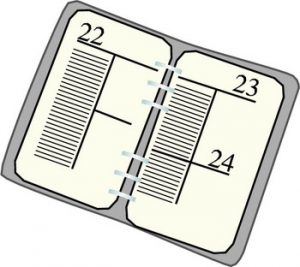Book Review: 12 Ways Your Phone is Changing You by Tony Reinke


First, I want to start with a quote that the author, Mr. Reinke, used from Charles Spurgeon: “The easiest work in the world is to find fault.” Mr. Reinke used that quote in the context of Chapter 11 – “We Become Harsh to One Another.” My goal is not to just find fault with Mr. Reinke’s book – I do have some positive things to say about it. But I also want to turn this quote back on the book as a mirror, because ultimately that was my biggest complaint with this book – I felt like much of it was just the author finding fault with smart phones and smart phone users.
Before I go further with my review, let me back up to why I found myself reading/listening to this book, and why I am offering this review on my homeschool website.
The Background
One of our church elders likes to tell us about good non-fiction books that he has discovered. I often read his recommendations and generally like them and learn from them. Last week’s recommendation was another interesting-sounding title that I wasn’t familiar with – 12 Ways Your Phone is Changing You. I did what I do with the majority of books that catch my interest – I went to Audible and got the audio version of it – so I could listen to the book on my phone. I’m still mulling over the irony of that decision for this particular title, but I knew it was the best way for me to get to the book sooner rather than later.
I listened to most of the book during the week – while I was driving to swimming, driving to the airport in Nashville, and during down times on a family trip when the others were occupied). I like the fact that I can listen while I drive – that fact alone has allowed me to finish many great books in the last few years that I would not have had the time to read. (In fact, that was one of my first complaints about the book – Mr. Reinke went to great lengths to share the differences between reading a print version of something and reading the ebook version. But he completely ignored those of us who listen to books, which for some of us is our most frequent method of consuming books today.)
Because I listened to the book, I can tell you approximately how much time I initially spent with the book – just under seven hours. Was the book worth seven hours of my time? Definitely. Was it worth the price(s) that I paid? Yes, I would say so. Did I agree with everything the author wrote? Not even close. But that isn’t ultimately my measure for whether a book was worth reading (or listening to).
I think the author makes some really good points about the way cell phones have invaded our lives in these modern times. But I cannot agree with much of what he says, as hard as I might try.
Positive Points of the Book
The introduction was a little lengthy, but overall I liked his “Theology of Technology.” It’s good to be reminded that technology is not a new thing, nor strictly speaking a human invention. We have to give God credit for giving us the ability and the raw materials with which to invent things.

The breakfast area in our hotel this weekend might be showing us how far we’ve come with our addictions to our phones as a society!
It is also good for all of us who use smart phones to evaluate how we use our phones, or as the book’s description puts it “Do you control your phone or does your phone control you?” And the author does give many suggestions for how to determine that.
Another quote from the book that I agree with: “I do not have ‘time to kill’ – I have time to redeem.” This is a good thing for Christians to remember, particularly in regards to our use of technology. Putting that quote on our smart phones and our laptops would probably be a good reminder as we make decisions throughout our days.
Additionally, it is good to remember that Jesus commanded us to love God and to love our neighbors. How we use the tools in our life certainly fall under those commandments. I do agree with that fact, though I often got the impression that the author was balking at the idea that we could use our smart phones in the obedience of God’s commandments.
Negative Points of the Book
I think the author paints with too wide a brush. He describes extremes of smart phone usage as if that was the norm. And while I know there are many who do abuse the use of their phones, I don’t believe it to be the case that the majority do. I’m spending the weekend out of state with my sisters and our mother. (We’re attending a family reunion tomorrow.) We’re all smart phone users to some degree (my mother, who is in her 80s, is much less so, not surprisingly), but I think it’s fair to state that none of us our controlled by our cell phones.
In fact, when I read the following quote aloud to my sisters, there was universal disagreement: “If we are honest, we use most of the time we spend on our phones for sharing jokes, GIFs, images, and videos, and for talking about sports, the weather, humor, and entertainment with our friends and family members.”
All three of us have children and grandchildren around the country and around the world. As a result, we all use our cell phones as a primary form of communication with them. No, we don’t necessarily use our devices to TALK to them, but we use texting, emailing, and WhatsApp to keep in touch with them. Most of our photo and video sharing is to keep up with the same kids and grandkids. While memory might be great for something you experience yourself (a point the author made when he seemed to dismiss the value of most digital photography), these videos and photos are what keep us in the loop with our families, and are something we are all extremely happy to have.
So, in answer to his question towards the end of the book, what should we do with our phones, rather than what can we do, for us as grandmothers and mothers, using them to help us keep connected to our families certainly falls in the should category.
Do I Recommend The Book?
So, after all that, do I recommend this book? To the right audience, yes. I think it could be really helpful for a family with teenagers (and/or adults) who are using smart phones. (Especially if some or all of said family members are overusing their phones.) My recommendation would be to read (or listen to) the book out-loud together, one chapter at a time. I can envision good conversations as families discuss the principles that Mr. Reinke presents. And in many cases, I can see it making a real difference, as family members evaluate how their phones really impact their daily lives! (Just keep in mind that everything he says is not going to apply to everyone!)
My Personal Usage
I do believe that for many of us, smart phones are a legitimate tool for many of us to use in our daily lives. Does my morning routine involve my cell phone? Yes, I willingly admit that it does. I check my emails, texts and WhatsApp almost as soon as my alarm goes off. (My phone has been on silent all night, and with family all over the world it is not infrequent to awake to messages.) I glance at my recent emails that aren’t from family, but seldom respond to them at that time, since I’m generally getting ready to get out the door for swimming.
One of the next things that I do is check the email that came in during the night from BibleGateway with the verse for the day. I always read the verse, and generally listen to the entire chapter that the verse is from. My one real “time waste” at this time is also to check the Audible Daily Deal – I seldom purchase those, but I listen to enough Audible books that I like to see what the option is. (I have encountered countless great books through the Daily Deals that I would otherwise not have known about.)
If I’m by myself, I generally turn on music or push play on one of my current Audible books. One of those will generally be on until I join other family members or get where I’m going (again, many mornings I’m heading straight to the pool). My personal rule – I don’t listen to my phone when I’m around others, unless we are listening to something together. I seldom deviate from that rule!
Later in the day my phone gets used for communication, research, my calendar and to do list, and only rarely do I get on Facebook (usually to catch up with family members, or currently, to check in with a writers group that I’m involved with). I don’t play games, seldom watch videos, or do any of the other things Mr. Reinke mentions. Could I use other devices to set my alarms and do all of the above things? Sure. But why would I want to? Just like the laptop that I do most of my writing on, my phone is a very useful tool. I appreciate the ways that it can streamline my life. I will make no apologies for that. If my use of it becomes problematic, I will certainly reconsider, but at the moment, I am comfortable with my cell phone usage.
What is Your Usage?
But again, everyone who uses a smart phone would be well served to periodically do a reality check of how that usage is going. This book could a good tool to help make that check.
Happy learning!
Cathy



 As yesterday was coming to a close I realized I had missed my deadline – the deadline for this week’s blog post.
As yesterday was coming to a close I realized I had missed my deadline – the deadline for this week’s blog post. I also won’t apologize for the context of this post, a topic that I have addressed several times in the more or recent past, and that some of you may be tired of hearing. But, if you have heard
I also won’t apologize for the context of this post, a topic that I have addressed several times in the more or recent past, and that some of you may be tired of hearing. But, if you have heard  This was my twenty-first year to be the advisor for the
This was my twenty-first year to be the advisor for the  These kids brought me to tears (not a first for a Mock Trial weekend, sadly). But this was the first time that those were all tears of joy. I cannot think of one time in the entire weekend that I was angry with any of them, or even slightly annoyed for that matter. In spite of room issues the first night, late nights all weekend, and last minute changes to their trial plans when both teams had their opening lawyers start a day not feeling well, they hung in there, worked together, and continued to do their best. One team even had to do more trials than they felt like they had agreed to (four is the promised number of trials, with some teams getting a fifth, and generally only the top two teams getting in a sixth trial). But this weekend they had the two expected trials on Saturday, followed by four in a row on Sunday (most likely a record!) They were tired, some of them were more than a little overwhelmed by the extra efforts required by the two extra trials, but they all gave it their best, complained very little, and kept going.
These kids brought me to tears (not a first for a Mock Trial weekend, sadly). But this was the first time that those were all tears of joy. I cannot think of one time in the entire weekend that I was angry with any of them, or even slightly annoyed for that matter. In spite of room issues the first night, late nights all weekend, and last minute changes to their trial plans when both teams had their opening lawyers start a day not feeling well, they hung in there, worked together, and continued to do their best. One team even had to do more trials than they felt like they had agreed to (four is the promised number of trials, with some teams getting a fifth, and generally only the top two teams getting in a sixth trial). But this weekend they had the two expected trials on Saturday, followed by four in a row on Sunday (most likely a record!) They were tired, some of them were more than a little overwhelmed by the extra efforts required by the two extra trials, but they all gave it their best, complained very little, and kept going. Most of these students will never become lawyers. In fact, it is likely that many of them will never step into a court room again after these competitions. But they still gain so much from participating in this program. I’ve watched so many of them come of out their shells, honing their abilities to argue their points, and learning to think on their feet. And throughout it all I watch so many of them develop friendships that will move into their post-school years with them. They often comfort others who have become overwhelmed or stressed, moving beyond just thinking about themselves.
Most of these students will never become lawyers. In fact, it is likely that many of them will never step into a court room again after these competitions. But they still gain so much from participating in this program. I’ve watched so many of them come of out their shells, honing their abilities to argue their points, and learning to think on their feet. And throughout it all I watch so many of them develop friendships that will move into their post-school years with them. They often comfort others who have become overwhelmed or stressed, moving beyond just thinking about themselves.


 In Alabama it is actually called Youth Judicial, but we’ve always called it Mock Trial and that’s what it’s generally called elsewhere, so we’ll stick to that. Mock Trial is a state competition for high school students (generally from public and private schools, with a few homeschool teams sometimes sprinkled in for good measure). In most states Mock Trial is sponsored by the state bar association, but in Alabama it’s sponsored by the YMCA. In states with bigger programs, there are competitions where teams must qualify to go to the state event, but in Alabama we just have the one, large state-wide competition that happens each November in Montgomery.
In Alabama it is actually called Youth Judicial, but we’ve always called it Mock Trial and that’s what it’s generally called elsewhere, so we’ll stick to that. Mock Trial is a state competition for high school students (generally from public and private schools, with a few homeschool teams sometimes sprinkled in for good measure). In most states Mock Trial is sponsored by the state bar association, but in Alabama it’s sponsored by the YMCA. In states with bigger programs, there are competitions where teams must qualify to go to the state event, but in Alabama we just have the one, large state-wide competition that happens each November in Montgomery.
 Each trial is conducted like a smaller, more controlled, version of a real life trial. The courtroom is set up like in real life – complete with a judge and a bailiff (in Alabama those are also students), a jury, a Prosecution team and a Defense team.
Each trial is conducted like a smaller, more controlled, version of a real life trial. The courtroom is set up like in real life – complete with a judge and a bailiff (in Alabama those are also students), a jury, a Prosecution team and a Defense team. Then it’s time for Defense to tell their side of the story – calling up their three witnesses to each be directed and crossed. During these directs and crosses lawyers are allowed to make objections if they so desire. (Hearsay and Relevance being two that we hear often down there.) Judges rule on each of the objections as they are made. (Often rather poorly in this coach’s perspective, but alas, they aren’t asking for my opinion on the matter!)
Then it’s time for Defense to tell their side of the story – calling up their three witnesses to each be directed and crossed. During these directs and crosses lawyers are allowed to make objections if they so desire. (Hearsay and Relevance being two that we hear often down there.) Judges rule on each of the objections as they are made. (Often rather poorly in this coach’s perspective, but alas, they aren’t asking for my opinion on the matter!) That’s the nuts and bolts of how the trials run. After trials I like to go over my notes with my students, generally encouraging them, sometimes reminding them to “Speak up!” and occasionally pointing out small things they can work on for the next time. We will have practiced many times before this, and this isn’t the time to make major changes to our process. They have it by then or they don’t. But sometimes there is a question about an unexpected objection, or a procedural difference that surprised us. I’m not a lawyer, so occasionally these questions stump me too, but generally my twenty plus years of Mock Trial experience will give me the information they are seeking.
That’s the nuts and bolts of how the trials run. After trials I like to go over my notes with my students, generally encouraging them, sometimes reminding them to “Speak up!” and occasionally pointing out small things they can work on for the next time. We will have practiced many times before this, and this isn’t the time to make major changes to our process. They have it by then or they don’t. But sometimes there is a question about an unexpected objection, or a procedural difference that surprised us. I’m not a lawyer, so occasionally these questions stump me too, but generally my twenty plus years of Mock Trial experience will give me the information they are seeking. We’ve met countless teams in Montgomery that have held tryouts for their teams and are going down with every intention of trying for the first place award. Many of them are serious to the point of obnoxiousness. We’ve never had anything against winning. (I lose track, but I think we’ve taken home nine first place awards in the twenty years we’ve done this, as well as numerous second and third places.) But I don’t go down there expecting or desiring that. I would rather take students who want to learn something, while having a reasonably good time at it. I’ve never gotten angry with a student who forgot the facts in their statement or who missed an objection. As long as my students are doing their best, and not cheating (something we see too much of in Montgomery), I am happy with them.
We’ve met countless teams in Montgomery that have held tryouts for their teams and are going down with every intention of trying for the first place award. Many of them are serious to the point of obnoxiousness. We’ve never had anything against winning. (I lose track, but I think we’ve taken home nine first place awards in the twenty years we’ve done this, as well as numerous second and third places.) But I don’t go down there expecting or desiring that. I would rather take students who want to learn something, while having a reasonably good time at it. I’ve never gotten angry with a student who forgot the facts in their statement or who missed an objection. As long as my students are doing their best, and not cheating (something we see too much of in Montgomery), I am happy with them. Lawyers on the other hand, can use notes if they want to. (It may drop their score by a point, but that’s not a point worth stressing about.) Before the competition, each lawyer has to write a series of questions for whichever witness they are going to be crossing. They also need to have at least a passing knowledge of the most common objections, particularly the ones they are most likely to hear on their questions or that they will most likely want to make. (Something we try to work on each practice to make it easier. But again, not something I stress about.) Additionally, one lawyer from each team has to write the Opening Statement and another lawyer has to write the Closing Argument. Again, lawyers have the privilege of being able to memorize their questions and speeches, or to use notes, whichever they prefer.
Lawyers on the other hand, can use notes if they want to. (It may drop their score by a point, but that’s not a point worth stressing about.) Before the competition, each lawyer has to write a series of questions for whichever witness they are going to be crossing. They also need to have at least a passing knowledge of the most common objections, particularly the ones they are most likely to hear on their questions or that they will most likely want to make. (Something we try to work on each practice to make it easier. But again, not something I stress about.) Additionally, one lawyer from each team has to write the Opening Statement and another lawyer has to write the Closing Argument. Again, lawyers have the privilege of being able to memorize their questions and speeches, or to use notes, whichever they prefer. Sadly, this is the difficult part of the equation. Competing in Alabama’s Mock Trial Competition is not cheap! The YMCA charges each student $275 – and that only covers some of our costs (two of our nights in the hotel, a couple of our meals, and a t-shirt they may or may not want). On top of that, our additional expenses have risen to $125 per student – by the time we pay for our additional hotel costs, the extra meals, and our transportation to and from Montgomery. (And this is with the coaches and any other parents that want to attend paying their own expenses.)
Sadly, this is the difficult part of the equation. Competing in Alabama’s Mock Trial Competition is not cheap! The YMCA charges each student $275 – and that only covers some of our costs (two of our nights in the hotel, a couple of our meals, and a t-shirt they may or may not want). On top of that, our additional expenses have risen to $125 per student – by the time we pay for our additional hotel costs, the extra meals, and our transportation to and from Montgomery. (And this is with the coaches and any other parents that want to attend paying their own expenses.) Obviously, each family has to decide that for themselves, but more than twenty years ago I made the decision that yes, this was something we would invest the time and money into. (Fortunately it didn’t cost quite this much back then. Costs seem to rise annually.) And believe me, we have – I’ve taken as many as three of my own children to this at one time – having to pay for each of them and myself as the coach. And I’ve paid for the privilege of taking other people’s children for the last several years, since my last child graduated from the program. So, yes, I know the costs and have been willing to pay them.
Obviously, each family has to decide that for themselves, but more than twenty years ago I made the decision that yes, this was something we would invest the time and money into. (Fortunately it didn’t cost quite this much back then. Costs seem to rise annually.) And believe me, we have – I’ve taken as many as three of my own children to this at one time – having to pay for each of them and myself as the coach. And I’ve paid for the privilege of taking other people’s children for the last several years, since my last child graduated from the program. So, yes, I know the costs and have been willing to pay them.


 The beauty of traveling is that it doesn’t have to be expensive. My family has taken LOTS of people on a seemingly never ending supply of road trips – even when our budget felt stretched to the limit. When money is tight we tend to take more food with us for “picnic meals,” rather than eating out as often. We also look for cheaper overnight accommodations: everything from sleeping in our vehicle (we drove a customized 15 passenger van for 10 years), camping, or staying with family and friends (even when we maxed out with 13 of us we occasionally found people willing to put us up; and now, as we generally travel with a smaller number, those people are even easier to find).
The beauty of traveling is that it doesn’t have to be expensive. My family has taken LOTS of people on a seemingly never ending supply of road trips – even when our budget felt stretched to the limit. When money is tight we tend to take more food with us for “picnic meals,” rather than eating out as often. We also look for cheaper overnight accommodations: everything from sleeping in our vehicle (we drove a customized 15 passenger van for 10 years), camping, or staying with family and friends (even when we maxed out with 13 of us we occasionally found people willing to put us up; and now, as we generally travel with a smaller number, those people are even easier to find).


















 My oldest kids were on one of the first ever homeschool teams in the state of Texas, and four years later one of my sons started the first ever homeschool team in the state of Alabama. And we continued the Mock Trial teams through our homeschool group long after that son graduated from high school, college, and law school. If you count the early years when I was more of an advisor than a coach (my son served as the real coach for the first few years in Alabama), this will be my 21st year coaching high school Mock Trial.
My oldest kids were on one of the first ever homeschool teams in the state of Texas, and four years later one of my sons started the first ever homeschool team in the state of Alabama. And we continued the Mock Trial teams through our homeschool group long after that son graduated from high school, college, and law school. If you count the early years when I was more of an advisor than a coach (my son served as the real coach for the first few years in Alabama), this will be my 21st year coaching high school Mock Trial. I’m very happy that all of my children (as well as three of my nieces and dozens of other homeschooled students) have been able to partake of this amazing activity. For those who want to become lawyers, it is practically a must. But even for the more numerous students who have no interest in going into law, it is an amazing experience! It helps students work on their public speaking skills as well as their logic and quick thinking. And it introduces them to how our judicial system should work.
I’m very happy that all of my children (as well as three of my nieces and dozens of other homeschooled students) have been able to partake of this amazing activity. For those who want to become lawyers, it is practically a must. But even for the more numerous students who have no interest in going into law, it is an amazing experience! It helps students work on their public speaking skills as well as their logic and quick thinking. And it introduces them to how our judicial system should work. It’s not an easy extracurricular activity – it takes up several hours a week for about six weeks each fall. (At least in Alabama. In other states, the Mock Trial competition occurs later in the year.) We’ve gone up against teams that do tryouts for spots on their teams, but we’ve never felt the need to do that. In our twenty years of competing in Mock Trial in Alabama we only had try outs once – and that was when I had two students that both wanted to give the Opening Statement on their team. We had to settle that with a “write off.” But I’ve never had to turn down a high schooler who wanted to participate with us. (We’ve occasionally had to fill team spots with 7th or 8th graders, and I haven’t always had spots for younger siblings that have wanted to participate with us.)
It’s not an easy extracurricular activity – it takes up several hours a week for about six weeks each fall. (At least in Alabama. In other states, the Mock Trial competition occurs later in the year.) We’ve gone up against teams that do tryouts for spots on their teams, but we’ve never felt the need to do that. In our twenty years of competing in Mock Trial in Alabama we only had try outs once – and that was when I had two students that both wanted to give the Opening Statement on their team. We had to settle that with a “write off.” But I’ve never had to turn down a high schooler who wanted to participate with us. (We’ve occasionally had to fill team spots with 7th or 8th graders, and I haven’t always had spots for younger siblings that have wanted to participate with us.)